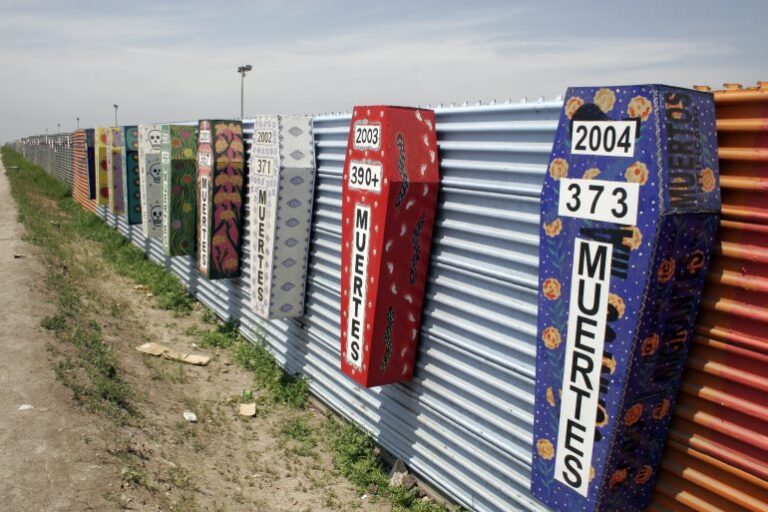Taking Something Unconventional and Making It Beautiful: An Interview with Elisabeth Jaquette
Elisabeth Jaquette is a prolific writer and translator of Arabic. Her translations have appeared in the Guardian, Asymptote, multiple anthologies, and other places. She holds an MA from Columbia University and was a CASA Fellow at the American University of Cairo. In this interview, we discuss her first novel-length translation, Basma Abdel Aziz’s The Queue, which was published last month by Melville House. The Queue is a part-1984, part-Kafka, part-magical realism story about a small group of characters experiencing the effect of a rising authoritarianism—known only as the Gate—on life in a fictional Arabic country. The work received an English PEN Translates Award in 2014, and this year Jaquette served as a judge for the PEN Translation Prize.
Graham Oliver: This book is one in which the shift in audience from one language to another is especially difficult to quantify, right? You probably dealt with separate questions about how the new audience will appreciate it as art but also how the reference points needed to make it work carry over.
Elisabeth Jaquette: My greatest concern was figuring I thought a great deal about how to convey the allegorical aspects of The Queue. I read the novel after having lived in Egypt for five years, through the revolution in 2011 and its aftermath. So its parallels to specific events, governmental bodies, and even the Gate’s rhetorical styles were very clear to me. But a foreign audience has none of those reference points. How can you recreate a political allegory when you can no longer assume that the underlying referents are common knowledge? How can you convey satire when the audience of the translation doesn’t know what’s being satirized?
I was also conscious that different lived experiences lead to different assumptions about power, which was an even greater gap to bridge. When the official behind the counter tells you he’s lost your papers, has he really lost your papers? Do you assume the newspaper intends to print the truth? How cautious should you be about surveillance? In general, I think Americans tend to take political reality more at face value, and that affects how an American audience reads political satire like this.
Ultimately, I had to be satisfied with the fact that The Queue is such a rich novel because it functions on two levels: as allegory of Egypt’s recent political history and as a commentary on authoritarianism more broadly. Readers can recognize universals in a book that is very much rooted in a specific history. The mechanics of authoritarian regimes are so boilerplate: censorship, bureaucracy, manipulation of the truth, forced disappearances.
GO: On that subject, I’ve seen several reviews that assume the setting is Egypt, despite the fact that it’s specifically unspecific.
EJ: Abdel Aziz is clear that while The Queue may be based on the situation in Egypt, it was never intended to be set specifically in Egypt. Even so, the dialogue is written in Egyptian Arabic, and so much of the novel is evocative not only of Egyptian politics, but of specific places in Cairo, that when I first met Abdel Aziz I remember asking her: is the street that Yehya and Nagy (two characters) are walking down based off of this one in reality? Is the beggar woman you describe on page X the one who sits on such and such corner in real life?
GO: Is Abdel Aziz read mostly just in Egypt or does her writing spread throughout the Arabic-speaking world?
EJ: In the Arabic literary world, audiences are largely determined by publishing houses’ distribution, which is typically limited by national borders. Authors tend to be published in their home countries, and aside from book fairs, it’s often very difficult to get your hands on books from other countries, particularly for lesser-known authors. So Abdel Aziz’s primary audience is in Egypt, for similar logistical reasons that define most Arabic authors’ readerships, and as The Queue is her debut novel.
GO: I think English readers will, as the cover alludes, automatically draw a close connection between this book and 1984. Can you speak some to the literary connections the original, Arabic reader would make? I’ve seen The Committee mentioned in a few reviews.
EJ: Arabic readers certainly also note parallels to 1984 and to Kafka’s writings, as both are available in translation. And you’re right that many draw a close connection to Sonallah Ibrahim’s The Committee for its protagonist battling a baffling bureaucracy and dark satirical surrealism. Others would contextualize The Queue within the outpouring of literature written in response to the 2011 uprising. Many of those works, like much of the art produced at the time, tended to be more memoir-based and celebratory—books like Mona Prince’s Revolution Is My Name. Other writers deployed a more skeptical, critical lens: Ezzedine Choukri Fishere’s novel Bab El Khoroug (The Way Out) is perhaps most similar to The Queue in its critique of power structures through the eyes of a man caught in the system.
GO: How has your experience been serving as a judge for PEN America?
EJ: How can one compare a biography from the 1700s written in Ge’ez, to a French play from the 1960s, to a contemporary Korean novel? How can one assess the quality of a translation without access to the source text? The selection process forced me to articulate what I think makes a good translation – and in the end, good translation is good writing. Ultimately, the best translations expand the possibilities of the English language: they take something unconventional and make it beautiful.
GO: Can you give us some recommendations of Arabic-language work we should be reading? Even if it hasn’t been translated yet.
EJ: We’re in the midst of a very exciting time for Arabic literature in translation, as a younger generation of translators moves away from more academic, literal translations, and selects fiction based on its literary merit as opposed to its anthropological value.
Confessions by Rabee Jaber, brilliantly translated by Kareem James Abu-Zeid, is an evocative head trip of a novel: a fictional memoir about the narrator’s search for his own identity and reckoning with his unreliable memory, to the backdrop of the Lebanese Civil War. The Perception of Meaning by Hisham Bustani is a great genre-crossing work on the border between flash fiction and poetry, in stunning translation by Thoraya El-Rayyes. I also love The Silence and the Roar by Nihad Sirees, skillfully translated by Max Weiss: a funny, sexy, maddening novel about dictatorship and bureaucracy. The main character engages with many of the same themes as The Queue, but in this case with ironic disengagement.
As for work not yet translated, I would love to see more of Muhammad Khudayyir and Rania Mamoun’s short stories. I’d also highly recommend The Apartment in Bab el-Louk, a short story meets illustrated prose poem meets graphic novel, by Donia Maher, Ganzeer, and Ahmed Nady. I’ve translated an excerpt, but for the whole thing you’d have to read it in Arabic.
Read Elisabeth speak more on her process translating The Queue here.


